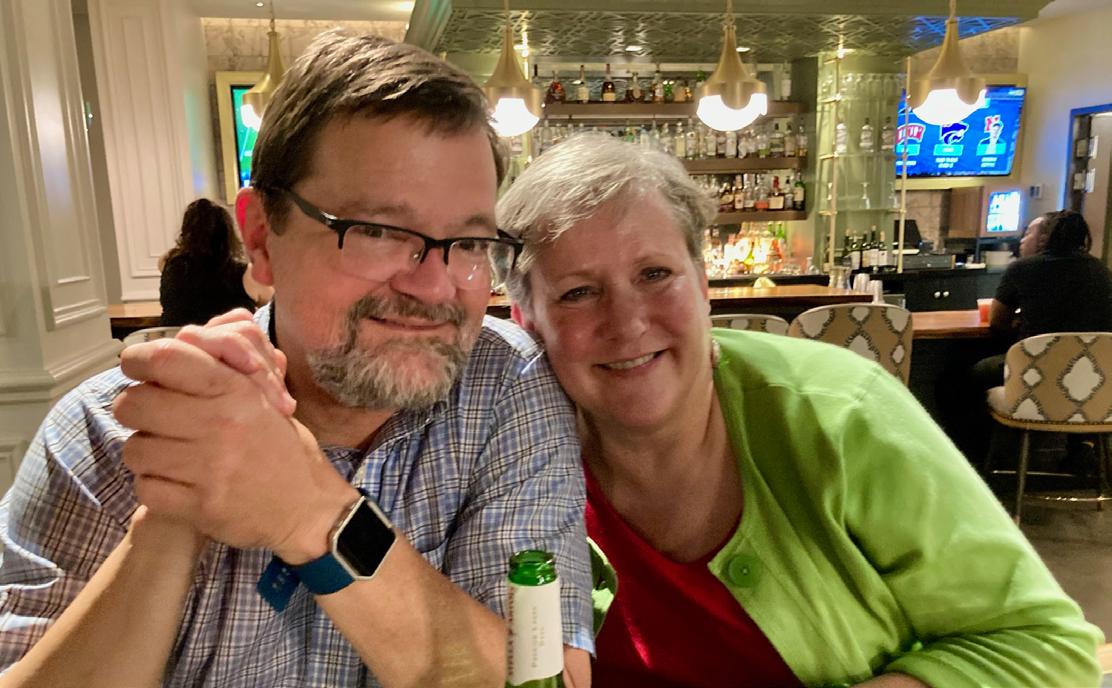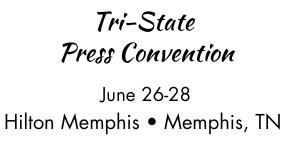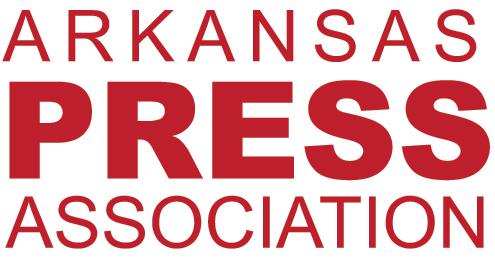
Make plans to attend the upcoming


Make plans to attend the upcoming
As a member of the Arkansas Freedom of Information Act Task Force, Rob Moritz has been directly involved with government transparency issues for the past eight years.
The nine-member group first was appointed after the passage of ACT 923 by the state legislature in 2017. It subsequently was signed into law by Gov. Mike Beebe.
The task force represents a range of interests, with members appointed by legislators, the governor and other interested groups, such as the Arkansas Press Association, the Arkansas Broadcasters Association, the Arkansas Municipal League and the Association of Arkansas Counties.
Moritz said the group does indeed represent various interests, and doesn’t always agree, but a consensus is reached on any proposed bills or amendments.
Sen. Jonathan Dismang appointed Moritz to the task force at its beginning and he was reappointed in 2021 by Sen. Jimmy Hickey, with his current term ending in August. Moritz currently serves as chairman of the group.
“It was an honor for me to be selected and an honor to continue to serve,” Moritz said. He pointed out that some of the state’s

foremost authorities on the Freedom of Information Act (passed in 1967) serve on the task force, including Robert Steinbuch and John Tull.
The group is assigned the responsibility of reviewing bills or amendments proposed by legislators that might affect the state’s FOIA, considered one of the strongest in the nation. It also is charged with making a recommendation, an up or down vote, to the full General Assembly.
Legislators also are invited to appear before the task force to discuss any potential bills that relate to the FOIA.
As an example, Moritz said there were 50 different amendments affecting the FOIA proposed in the 2017 legislative session. Despite some of the challenges, he said Arkansas retains a strong governmental transparency position compared to other states he is familiar with, such as Tennessee and Louisiana. “For example, there are 300 amendments on the books in Tennessee,” he said.
“For the most part, lawmakers have been receptive in bringing their proposed amendments to the Freedom of Information Act to the task force for discussion.”
Moritz said there is frustration with the tendency for some legislators either to not be aware of, or ignore, the role of the task force.
“We are realizing more and more that there are legislators who don’t even know what it is,” he said. “That doesn’t make sense because it’s their job to know. Someone should be telling them it exists since the legislature formed it.
“I have noticed that in the past two regular sessions the number of lawmakers who do not know about the task force or simply oppose it because they have preconceived notions about the task force, have increased. Some lawmakers even see the entire FOIA as an obstacle to their work as legislators. I also have grown to appreciate the variety of groups and organizations, despite their political leanings, that join forces to fight attempts to amend the FOIA.”
Moritz said lawmakers occasionally are successful in completing a blatant “end around” in making changes to the FOIA. Such was the case in 2023 when a bill ran that changed legislation on
Continued from page 1
who may be present for an executive session of school boards. It was first discovered by the task force about a month after the session because the bill was worded in a way to avoid any specific references to freedom of information, and it was never discussed in a committee.
Government transparency is one of the subjects Moritz discusses with students at the University of Central Arkansas in Conway, where he serves as a full-time journalism lecturer. He has been at the university since 2014, teaching a variety of classes in the department, including such subjects as beginning reporting, media law, covering police and courts and narrative non-fiction writing.
“I’ve loved working with the students,” he said. “And I’ve had some really, really smart students.”
One of his recent areas of focus has been serving as the coordinator for journalism internships, an area in which the Arkansas Newspaper Foundation also is involved. “They take it as a class and it’s fun watching students learn in a professional setting,” Moritz said.
He said many of the journalism majors specialize in broadcast, but in that focus, they still benefit from learning how to tell a story and improve their writing skills.
Moritz said a journalism degree prepares a graduate for a variety of professional tracks, such as law school or education.
Moritz grew up loving to read newspapers, but that generally is not the case with today’s students. As a result, he encourages them to add newspapers to their reading habits but also tries to steer them to legitimate and serious online news sites. That is a new concept for some students, who are focused largely on cultural news.
“I try to help them improve critical thinking,” he said. “If something seems unbelievable or untrue, think it through. Be a little suspicious. If your mother says she loves you, check it out.”
Moritz encourages his students to pursue a wider range of trusted news sources. “We’ve come to a time where we are in our own little bubble of information,” he said.
“Overall, I am happy with the students,” he said. “For the most part, they are inquisitive. They want to go out and tell stories and maybe make a difference in politics or whatever profession they are in.”
Being curious is what drew Moritz to the field of journalism in the first place.
He remembers a parent-teacher conference in elementary school when the teacher told his mother that, when he heard a siren, he jumped up and ran to the window to see the fire truck go by.
“I’ve just always been someone who is interested in what is going on,” he said. “I always liked to track things down, be where the action is and talk to people.”
That early attraction to “the news” eventually resulted years later in his earning a degree in journalism from the University of Arkansas at Little Rock.
“After two years at Hendrix College I was unsure about what I
wanted to do, so I left for a semester and ended up taking some journalism courses at the University of Arkansas at Little Rock,” he said. “I loved the classes and thought being a reporter/journalist was what I wanted to do as a career. I returned to Hendrix and completed my junior year and then transferred to UALR to finish with a degree in journalism.”
Moritz had a unique childhood relating to his father’s position as a mining engineer with the Alcoa Corporation. He was born in Jamaica and lived for a time in Surinam before the family moved to Pittsburgh when he was in elementary school. The family moved to Benton prior to his junior year, and he graduated from high school there.
Following college graduation, Moritz began an interesting newspaper career that included stops at the Benton Courier, Tyler (Texas) Morning Telegraph, Arkansas Gazette, Arkansas Democrat, Nashville Banner and the Tennessean. He covered such areas as police, courts, government and politics during his reporting career.
He ended his career with newspapers covering Arkansas government in Little Rock for the Stephens News Bureau. He worked closely with veteran journalist Dennis Byrd, considering him to be a professional mentor.
Along the line, he also picked up a master’s degree in journalism from UALR, which later served him well in his career change.
While at the Arkansas Democrat, he met his wife Gwen, a fellow journalist who was covering education for the newspaper at the time and later served 20 years as editor of Arkansas Business. She continues to take on special projects for that publication.
During his time as a journalist, Moritz covered such Arkansas political figures as Bill Clinton, Mike Huckabee and Mike Beebe In Nashville, he covered some important stories such as the arrival of the NFL Titans and the NHL Predators and the construction of a new stadium.
Moritz recently completed what could be considered a labor of love: a book about the life and work of his grandfather, “Dr. Alan R. Moritz and Forensic Pathology: Tales That Dead Men Tell.”

Dr. Moritz was a pioneer in the advancement of this critical medical field, with his seminal work being his muchcited 1956 article, “Classical Mistakes in Forensic Pathology.”
Moritz researched his grandfather’s papers at Harvard Medical School, the Rockefeller Foundation, Case Western Reserve University and the University Hospitals of Cleveland. Dr. Moritz, a native of Nebraska, was educated at the University of Nebraska
The “News Guru” Kevin Slimp will hold a webinar for newspaper professionals on April 24 called “Advanced Skills to Get Best Results with Photos Printed on Newsprint.” The 80-minute webinar costs $79 and starts at 3 p.m. Eastern Daylight Time.
Slimp brings decades of knowledge and experience to his students, training designers to use creative applications since the mid 90s, specializing in Photoshop. During the webinar, students will learn:
• The various selection tools (including the newest ones) & how to make precise selections
• Camera Raw Filter tools that can be used with your JPG, TIF or Camera Raw images
• Using Exposure Effectively
• Understanding dot gains and color settings even better to improve photo reproduction on newsprint
• Color Adjustment Tools
For more information or to register, visit https://newspaperacademy.com/ webinar/2504photo/.
at Omaha and Case Western Reserve University at Cleveland. He also studied later in Germany, as Europe was more advanced in the field at the time. Dr. Moritz was concerned that many crimes were not being solved because of a lack of training for coroners.
Dr. Moritz (1899-1986) was involved in studying such notable cases as the Kennedy assassination, the Sam Shepherd case, the Cocoanut Grove nightclub fire, the Attica prison riots and the University of Texas sniper incident. He also was recognized as
a foremost authority on injuries and deaths caused by fire.
The book, published by the Taylor & Francis Group, hit the market March 13. The publisher notes the book “is of interest to medical practitioners, history of science buffs and forensic practitioners interested in the early history and development of forensic pathology as a discipline.”
“I knew a lot of stories about my grandfather and his amazing career, but didn’t know all the details,” Moritz said. “Looking through

Mark your calendar for APA’s 2025 Advertising Conference next month in Little Rock.
The conference will kick off Thursday, April 10, at 1:30 p.m. with four Revenue Roundup panel discussions covering event planning, digital sales, special sections and tabs and


magazines. That evening, dinner and drinks will be served in a premium suite at Dickey-Stephens Park while the Arkansas Travelers baseball team takes on the Tulsa Drillers in the third home game of the 2025 season.
Attendees will reconvene Friday morning, April 11, for a celebratory brunch and mimosas at the APA Headquarters prior to the presentation of this year’s Better Newspaper Advertising Awards.
Those who still need to book hotel accommodations at the discounted APA room block rate should email ashley@ arkansaspress.org
A registration form and full schedule for the 2025 Advertising Conference can be found on pages 7 and 8 of this week’s Arkansas Publisher Weekly

Continued from page 3


his scientific papers was very educational for me, but they also contained a lot of family history.”
Moritz said his parents especially are excited about the book. His father, John A. Moritz, 95, and his mother, Earlene Moritz, almost 94, still live in Benton. He has two older brothers, one living in Cleveland and the other in Marshall, Texas, and a younger brother, who lives in Benton.
The Moritzes have two sons, Garth, 34, who is a stage manager for a theater group located on the campus of the University of Colorado at Colorado Springs, and Grant, 30, an internet administrator at the University of Arkansas – Pulaski Technical College.
The Moritzes live in North Little Rock but have a small house at Fairfield Bay, where they enjoy boating. Visiting antique and thrift stores is another favorite pastime. They also enjoy traveling, such as a recent trip to Colorado Springs to visit their son, then on to California and back through New Mexico.
In New Mexico, they visited the International UFO Museum in Roswell and Carlsbad Caverns. ‘We hiked to the part where 400,000 bats leave the cave. It was something I always wanted to see, and it was everything I thought it would be. Incredible.”
Moritz has been active for years in the state chapter of the Society of Professional Journalists, serving as treasurer.
“I still believe in journalism,” he said. “It is not dying. People still
need to learn how to tell stories ethically, accurately and concisely. And local newspapers are still very important. Writers and editors are trying their best to present news in a professional manner.”
Moritz is gaining satisfaction working with talented students who are focused on journalism and the discipline it can bring to them personally and its potential for helping them make a difference in society.
“For many of the students, journalism is a calling,” he said. “They become journalists so they can get jobs at news organizations –broadcast, magazine, newspaper or online – telling stories and informing people. Others simply love to write and love telling stories. Others see it as a way to not only improve their writing and critical thinking skills, but also to learn a variety of publishing and broadcasting technologies. They see it as a valuable and marketable degree that can get them a job after college, or further their education in graduate school.
“The top qualities/skills employers are looking for when hiring are the ability to write with clarity and meaning, to understand and complete tasks with minimal supervision, to work with a team or alone and good critical thinking skills. These are some of the important skills students learn while studying journalism. Also, many students are seeking mentors, and many journalism professors offer real-world advice and teaching because they have spent many years working before entering teaching.”



By Dean Ridings
Artificial intelligence is here — and it’s powerful. From recommending what to watch to helping draft messages or organizing your calendar, AI is becoming part of everyday life. Used responsibly, it can be a helpful tool. But when misused, AI can also be dangerous — especially when it misappropriates local news content without attribution, compensation or context.
A recent Nieman Lab investigation uncovered a sprawling network of AI-generated newsletters run by a single individual and published in more than 350 towns across 47 states. These newsletters repackage local news content — often lifted directly from trusted community newspapers — without permission, without credit and without paying a dime to the journalists who did the work.
The sites are designed to look like genuine local news sources, complete with familiar hometown branding and “about us” pages. But in reality, they rely on recycled testimonials, automated content and no local presence at all. Even more concerning, there is no disclosure that the content is generated or curated by AI — leaving readers unaware that what they’re reading may not come from a local newsroom at all. That’s not just misleading — it’s harmful.
We’ve seen this before. Big Tech platforms built massive businesses using content created by local newspapers, often without fair compensation. The reporting was done by the local newspapers, but Big Tech took the content and repurposed it as an additional way of attracting eyeballs, with none of the money flowing to the local news media. The result? Advertising dollars dried up, newsrooms shrank and communities lost critical coverage. The rise of AI scraping mirrors that same playbook. And this time, we can’t afford to let it happen again.
Local newspapers are not just another media outlet — they are the most trusted source of news in America. According to the Trust in Media study by America’s Newspapers and Coda Ventures, local newspapers outperform national outlets, television and social media on every trust measure. Readers consistently cite local papers as more transparent, more ethical and more invested in their communities.
The numbers speak for themselves: 80% of Americans believe it’s important to have a local newspaper. Nearly three in four say their community would suffer without one. And they’re right. Local journalists consistently earn high marks for covering what matters — from school board decisions and city council meetings to local sports and events that bring neighbors together.
Americans rely on local newspapers because they deliver facts, fairness and accountability. That trust wasn’t generated by an algorithm — it was earned by reporters who live and work in the communities they serve.
The best way to protect your local newspaper? Support it. Subscribe. Advertise. And back the businesses that do.
Because what’s at stake isn’t just the news — it’s the presence of professional, community-based journalists covering the stories that matter most.
For more information about the America’s Newspapers Trust in Media study, visit: https://member.newspapers.org/trust-inmedia.html
Dean Ridings is CEO of America’s Newspapers, an association of about 1,700 newspapers and publishing industry partner companies. Learn more at newspapers.org


APA is monitoring the following bills of interest to our industry and the public:
Bill No. / Author Short Description
HB 1042
Rep. Collins
HB 1141
To Create The Direct Democracy Act Of 2025; To Repeal The Ensuring Access For All Arkansans And Voter Protection Act Of 2023; And To Amend The Procedure For The Filing Of A Ballot Initiative Petition And Referendum Petition.
https://bit.ly/3WHRRDt
Rep. Richardson To Create Criminal Offenses Related To Deceptive And Injurious Media In The Course Of Election Campaigns.
HB 1382
Rep. Ladyman
SB 12
https://bit.ly/3El11zK
To Require Certain Reporting By The Designated Protection And Advocacy Agency For The State And The Designated Client Assistance Program For The State.
https://bit.ly/4ilYkgk
Sen. King To Amend The Freedom Of Information Act Of 1967; To Subject All Communication With The Board Of Apportionment To The Freedom Of Information Act Of 1967; And To Establish A Penalty.
https://bit.ly/42zIutn
SB 212
Sen. Hammer To Create The Document Validity Division; And To Declare An Emergency. https://bit.ly/4aZsrXU
SB 227
Sen. Tucker To Amend The Freedom Of Information Act Of 1967; And To Amend The Provisions Of The Freedom Of Information Act Of 1967 Concerning Public Meetings.
https://bit.ly/42WfEUm
SB 248
Sen. Tucker To Amend The Freedom Of Information Act Of 1967; And To Amend The Law Concerning Public Meetings Under The Freedom Of Information Act Of 1967.
https://bit.ly/4bvvF5E
SB 376
Sen. Clark To Amend The Freedom Of Information Act Of 1967; And To Amend The Provisions Of The Freedom Of Information Act Of 1967 Concerning Personnel Records.
https://bit.ly/4hk34lc
SB 506
Sen. M. Johnson To Amend The Freedom Of Information Act Of 1967; And To Repeal The Exemption Concerning Electronic Data Information Maintained By A Disaster Recovery System
https://bit.ly/4c1hwOd
Current Status
Reported correctly engrossed - House
Reported correctly engrossed - House
Reported correctly engrossed - Senate
Referred to the Committee on State Agencies & Govt’l Affairs - House
Re-referred to the Committee on State Agencies & Govt’l Affairs - Senate
Returned by the Committee, with the recommendation that it Do Pass - House
Referred to the Committee on State Agencies & Govt’l Affairs - Senate
Referred to the Committee on State Agencies & Govt’l Affairs - House
Referred to the Committee on State Agencies & Govt’l Affairs - Senate


Newspaper/Company
Address
City State Zip
Full Conference, $125: Includes Thursday afternoon sessions and breaks, Thursday night dinner and drinks in a premium suite at Dickey-Stephens Park, tickets to the Arkansas Travelers vs Tulsa Drillers game, Friday morning mimosa brunch and APA Better Newspaper Advertising Awards
Baseball Game +1, $40: Ticket to the Arkansas Travelers vs Tulsa Drillers game for additional guests not attending full conference
Friday Only, $50: Brunch and APA Better Newspaper Advertising Awards
1)
Email Address:
Choose ONE: Full Conference Baseball game additional guest Friday Brunch & Awards
2)
Email Address:
Choose ONE: Full Conference Baseball game additional guest Friday Brunch & Awards
3)
Email Address: Choose ONE: Full Conference Baseball game additional guest Friday Brunch & Awards
4)
Email Address: Choose ONE: Full Conference Baseball game additional guest Friday Brunch & Awards
Additional names can be added on back or in email reply.
Full Conference @ $125 = Baseball +1
@$40 = Friday only @$50 = Total $ =

THURSDAY, APRIL 10
1:00 PM Registration Opens - APA Headquarters
1:30 PM Welcome, Introductions and Announcements
THURSDAY, APRIL 10
Revenue Roundup Panel 1: Event Planning
1:00 PM Registration Opens - APA Headquarters
2:00 PM Revenue Roundup Panel 2: Digital Sales
2:30 PM Break
1:30 PM Welcome, Introductions and Announcements
Revenue Roundup Panel 1: Event Planning
3:00 PM Revenue Roundup Panel 3: Special Sections/Tabs
2:00 PM Revenue Roundup Panel 2: Digital Sales
3:30 PM Revenue Roundup Panel 4: Magazines
2:30 PM Break
4:00 PM Adjourn for break/attendees check into hotel
3:00 PM Revenue Roundup Panel 3: Special Sections/Tabs
5:30 PM Gates open at Dickey-Stephens Park
3:30 PM Revenue Roundup Panel 4: Magazines
6:00 PM Dinner and drinks served in APA Premium Suite
4:00 PM Adjourn for break/attendees check into hotel
5:30 PM Gates open at Dickey-Stephens Park
6:30 PM First Pitch - Arkansas Travelers vs. Tulsa Drillers
6:00 PM Dinner and drinks served in APA Premium Suite
6:30 PM First Pitch - Arkansas Travelers vs. Tulsa Drillers
FRIDAY, APRIL 11
FRIDAY, APRIL 11
9:00 AM Friday Only Registration Opens - APA Headquarters Brunch and Mimosas
9:00 AM Friday Only Registration Opens - APA Headquarters Brunch and Mimosas
10:00 AM 2025 APA Better Newspaper Advertising Awards
10:00 AM 2025 APA Better Newspaper Advertising Awards
12:00 PM APA Board Meeting (Board of Directors only to attend)
12:00 PM APA Board Meeting (Board of Directors only to attend)

